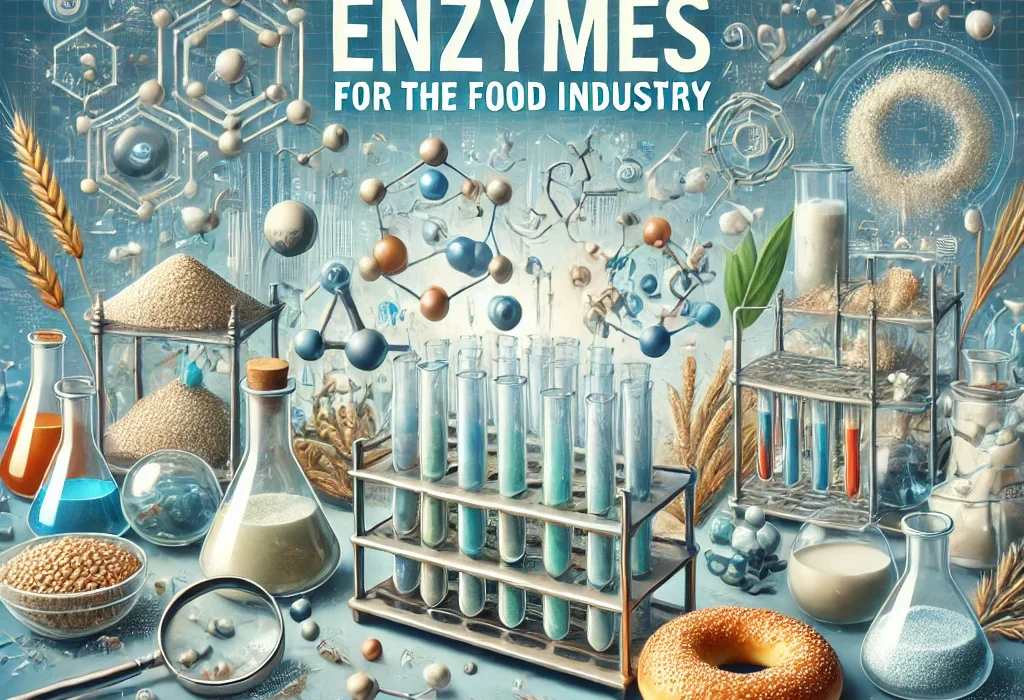Wilton Bioscience offers enzymes specifically tailored for the food industry. These enzymes are protein molecules that function as advanced catalysts, driving chemical reactions essential to food processing. Due to their remarkable catalytic properties, enzymes are vital in transforming raw materials to elevate food quality. Wilton Bioscience’s food enzymes enhance the taste and texture of food products. In food processing, these enzymes act as additives that modify various food properties. The applications of Wilton Bioscience’s enzymes span across industries such as starch processing, meat processing, biscuit manufacturing, bakery, dairy, and wine production. They are also instrumental in the production of pre-digested foods.
Wilton Bioscience enzymes have been extensively used in food processing, particularly for the modification and breakdown of biomaterials. A significant volume of fat-clearing enzymatic lipases is produced on an industrial scale. The majority of these commercial lipase enzymes are employed for flavor enhancement in dairy products and the processing of various other foods, including meat, vegetables, fruits, baked goods, dairy products, and beer.
Wilton Bioscience lipase enzymes are instrumental in modifying butterfat, leading to a wide range of applications in food processing. These applications include the production of chocolate with cocoa butter substitutes, bread, structured lipids like human milk fat replacers, low-calorie health oils, and nutraceuticals.
Food Enzyme Types
- Fungal Amylase 10000-150000 SKB U/g
- Acid Cellulase 10000-200000 CNC U/g
- Rennet 2000-15000 IMC U/g
- Bromelain 600-2400 GDU/g
- Lactase 2000-100000 ALU/g
- Neutral Cellulase 5000-50000 U/g
- Papain 50-1000 TU/mg
- Pectinase 10000-200000 U/g
- Bacterial Amylase 2000-50000 BAU/g
- Polygalacturunase 5000-40000 PGU/g
- Phospholipase 2000-10000 U/g
- Xylanase 5000-200000 XU/g
- Acid Protease 20000-600000 HUT/g
- Dextranase 5000-100000 U/g
- Alkaline Protease 5000-500000 U/g
- Beta Glucanase 5000-100000 BGU/g
- Neutral Protease 25000-500000 PC U/g
- Transalutaminase100-2000 U/g
- Lipase 10000-200000 FIP U/g
- Laccase 2000-50000 U/g
- Maltogenic Amylase 2000-15000 MAN U/g
- Veg Pancreatin
- Alpha Galactosidase 1500-30000 GAL U/g
Frequently Asked Questions
Food enzymes are natural proteins that aid in food production and processing. Derived from plant, animal, or microbial sources, they help break down complex food components, improve digestion, enhance flavors, and optimize processes in industries like baking, brewing, dairy, and meat processing.
Enzymes used in food are fungal Alpha-Amylase enzyme, Glucoamylase enzyme, Lipase enzyme, Lactase enzyme, Invertase enzyme, and Protease enzyme.
No, Food enzymes are not harmful, if taken in high quantity does not harm anyone.
